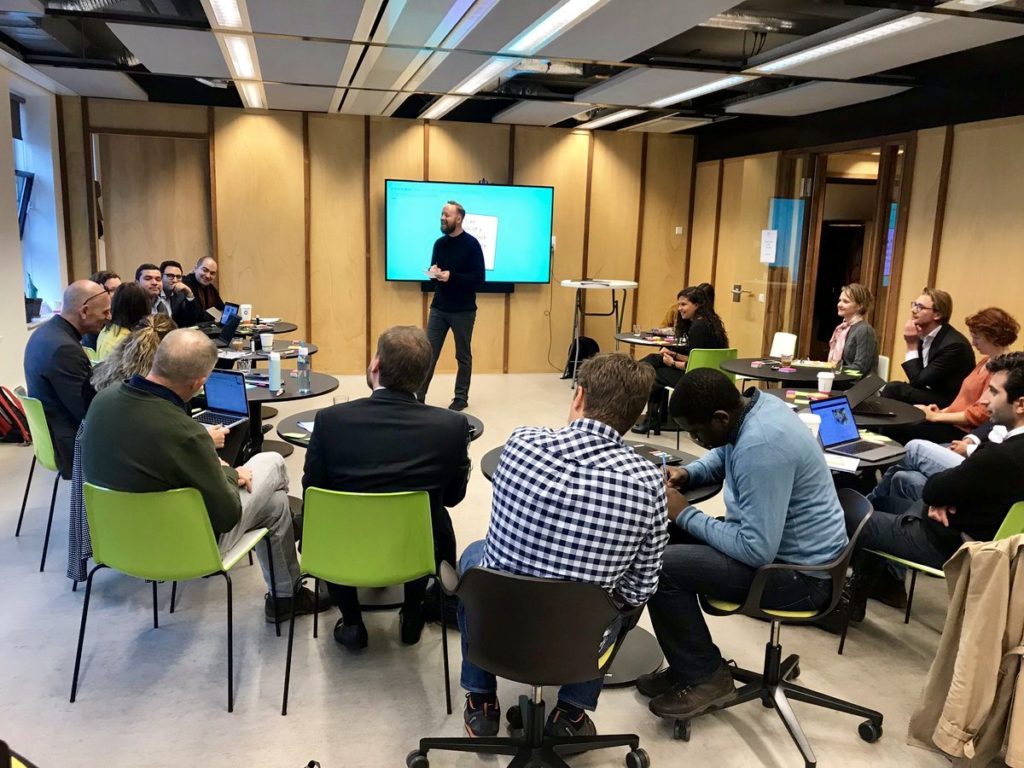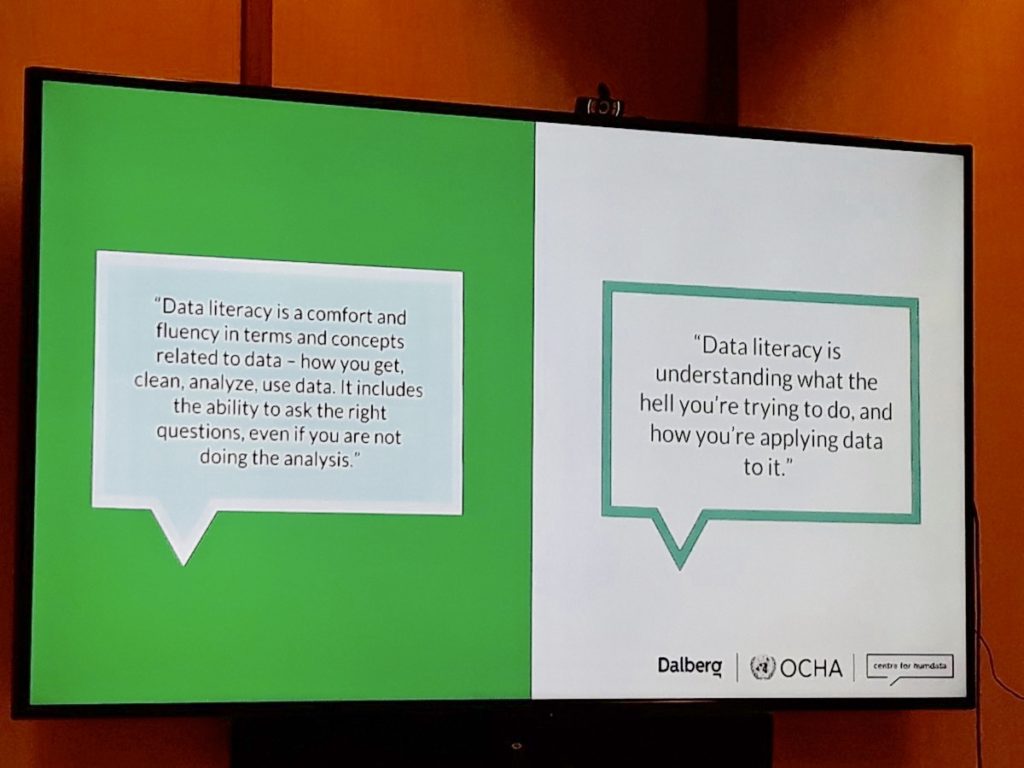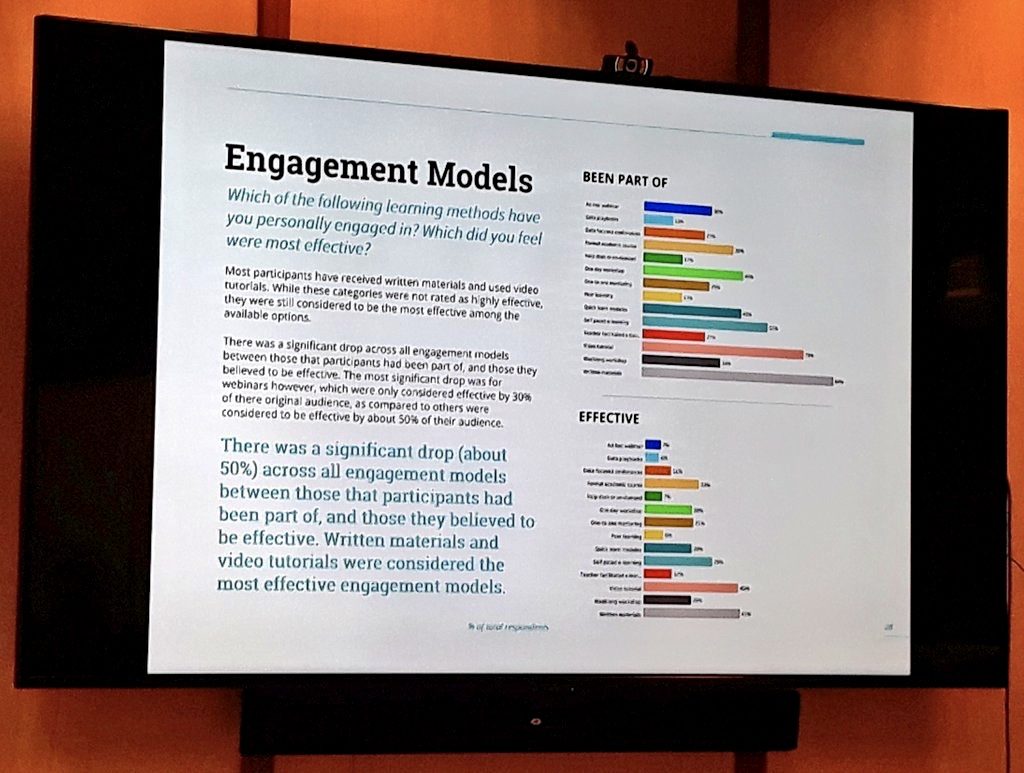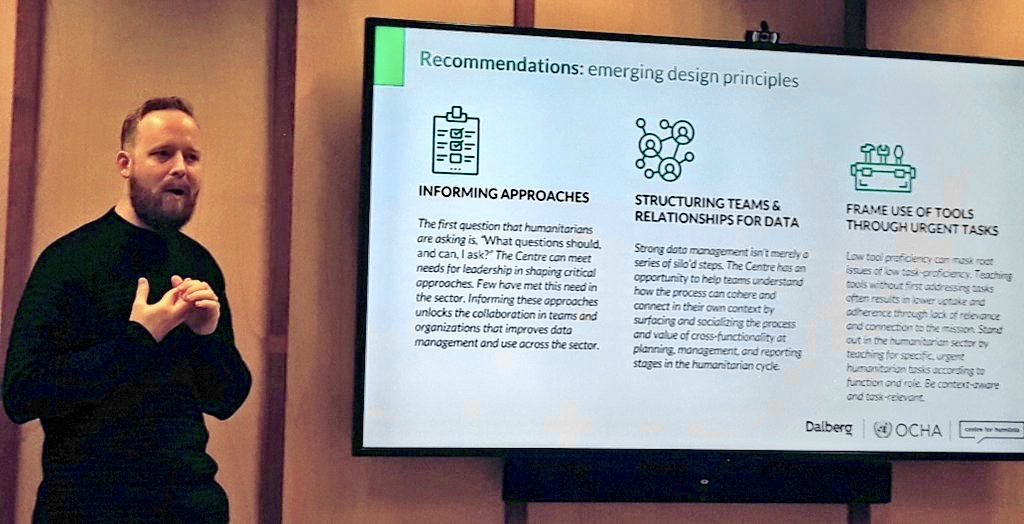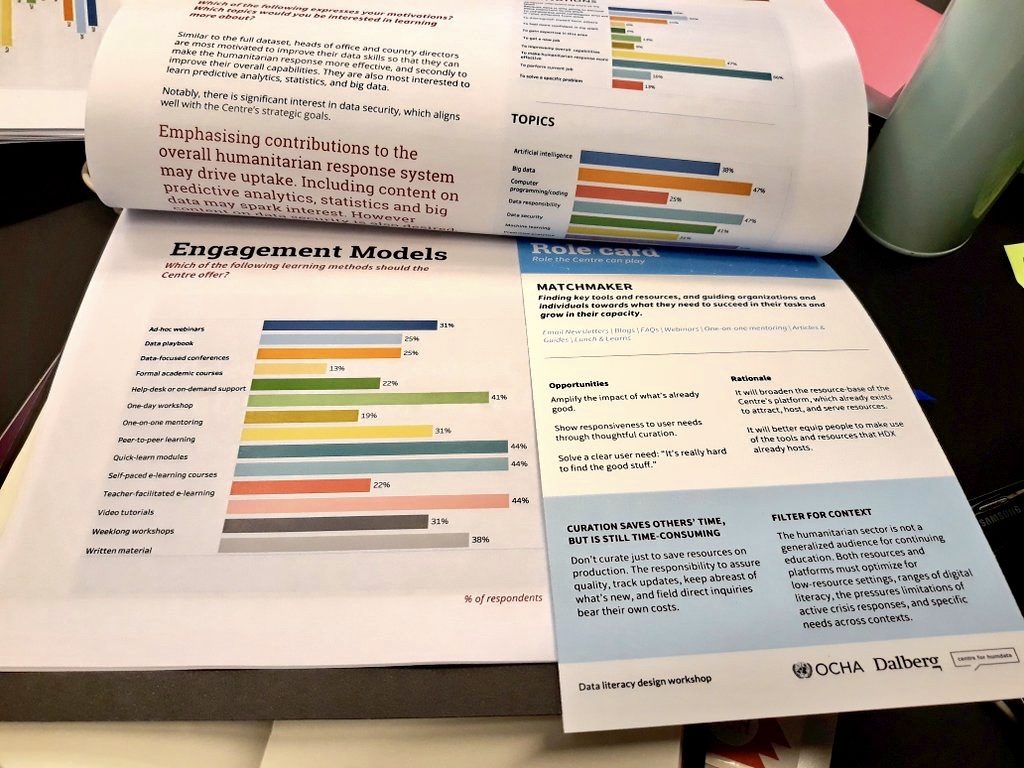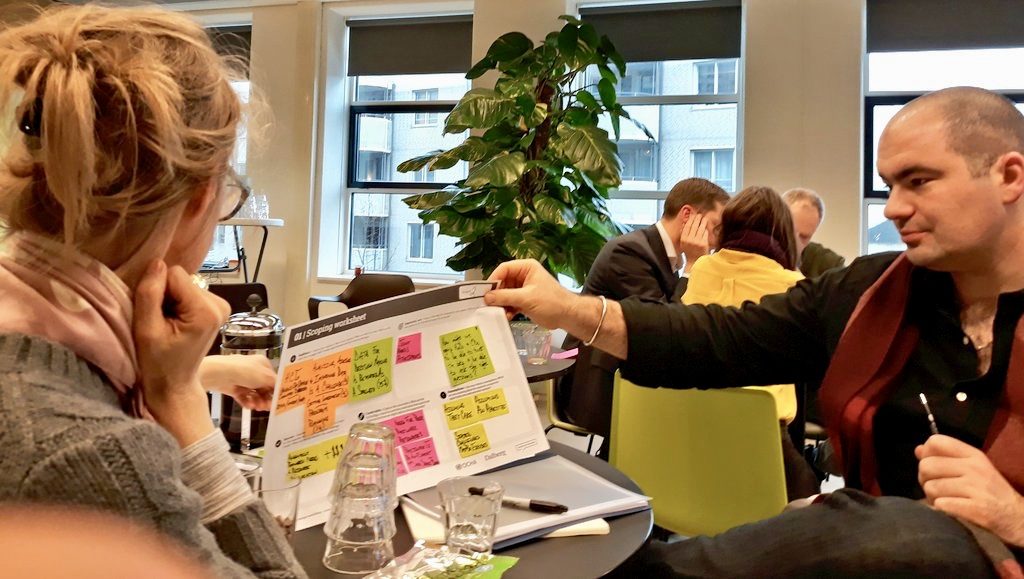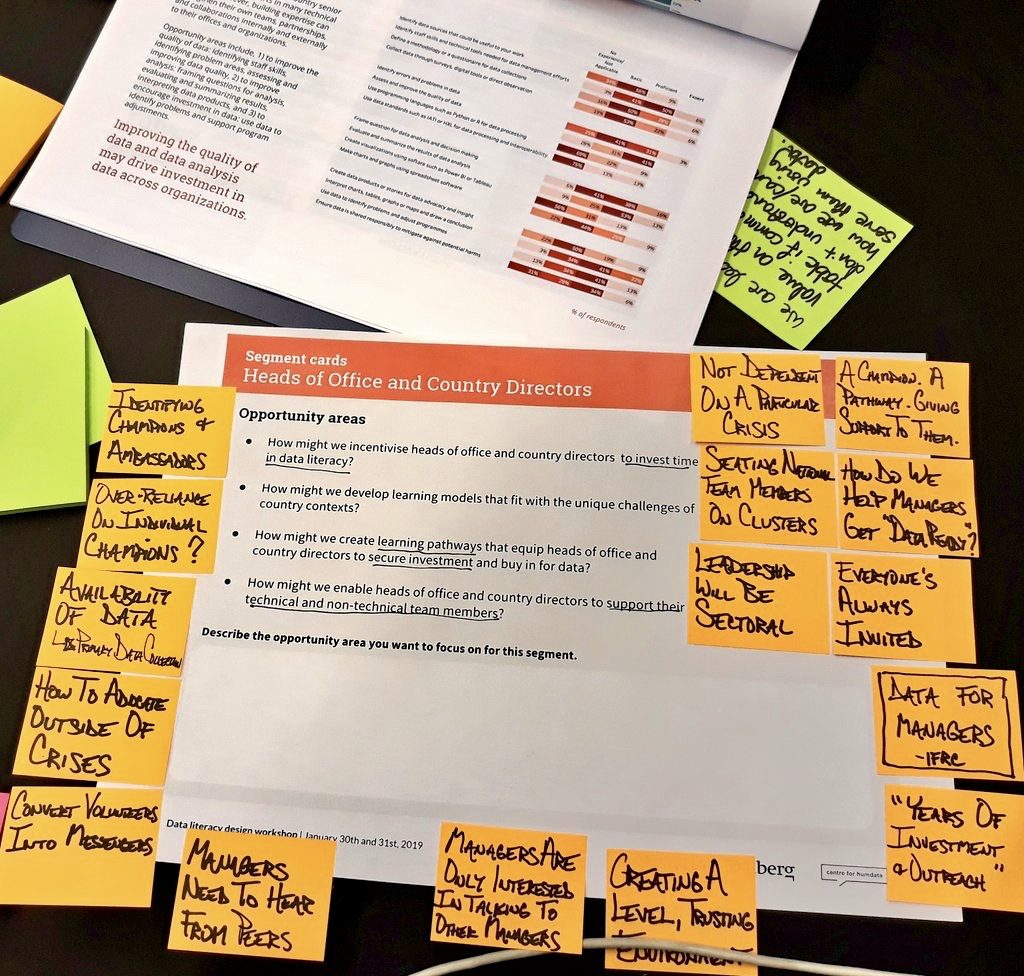Share
In January 2019, the Centre conducted an online survey to better understand how humanitarians are using data, what their core data skills are, and what kind of support they require to improve their capacity to use data effectively. The survey was conducted as part of a wider research effort to inform the design of the Centre’s Data Literacy programme.
A detailed analysis of the survey findings can be found in the slides below. First, here are a few details about the results:
- Over 1,200 people completed the survey from 111 countries.
- The greatest response rate came from people working outside of headquarters, i.e. those working in regional or country office locations.
- Data-oriented staff represented a significant share of respondents, however there was strong representation across programme management staff and even senior leadership.
- Analysing data was the most commonly reported task.
- Collecting primary data, and assessing and improving the quality of data were the most commonly reported challenges.
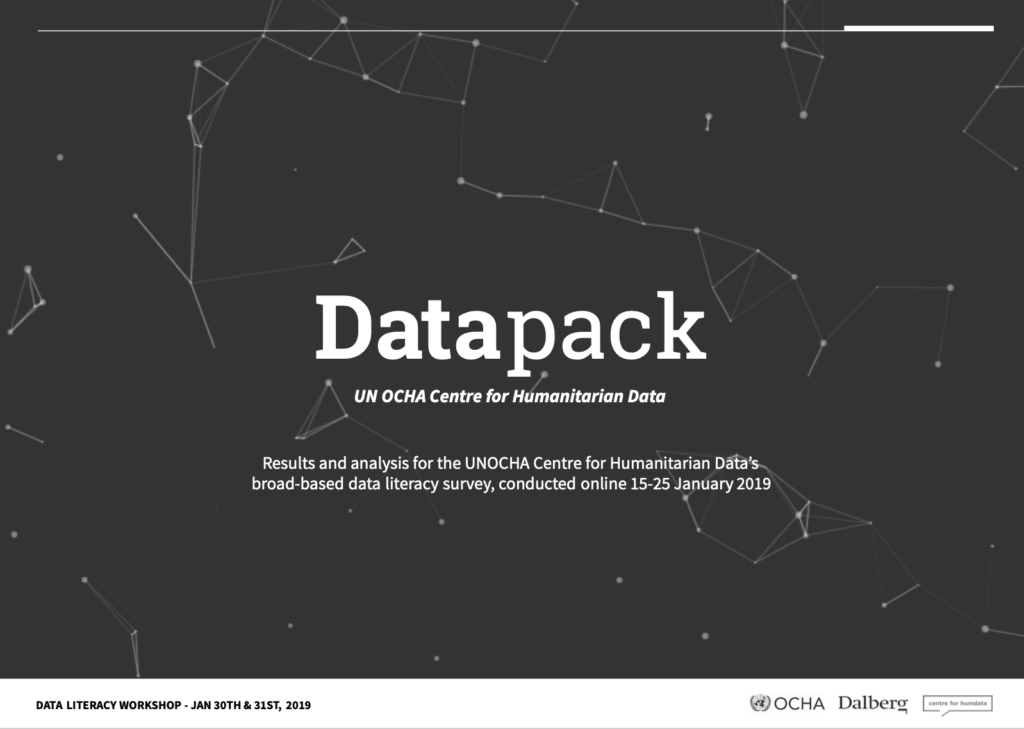
Key Takeaways
When the Centre was being designed in early 2017, we argued in our business plan that ‘the ability to use data will become a core competence of humanitarians in the twenty-first century, just like writing and critical thinking is today.’ The survey results demonstrate that this is already the case.
Below are a few key takeaways from the survey and some initial ideas about where we think the Centre can add value through its Data Literacy programme.
Data literacy is on the minds of humanitarians
We were thrilled to see that 1,581 individuals took the survey with 1,232 people completing it. We take this response rate (78%) as a sign that humanitarians are thinking about data literacy—and they are not the only ones. Over the past decade, we have seen a rapid shift in the role that data plays in all of our jobs. Across government, civil society, and the private sector, organisations are grappling with how to upskill their staff.
To build this capacity in the humanitarian sector, we first need to know what data literacy means for us.
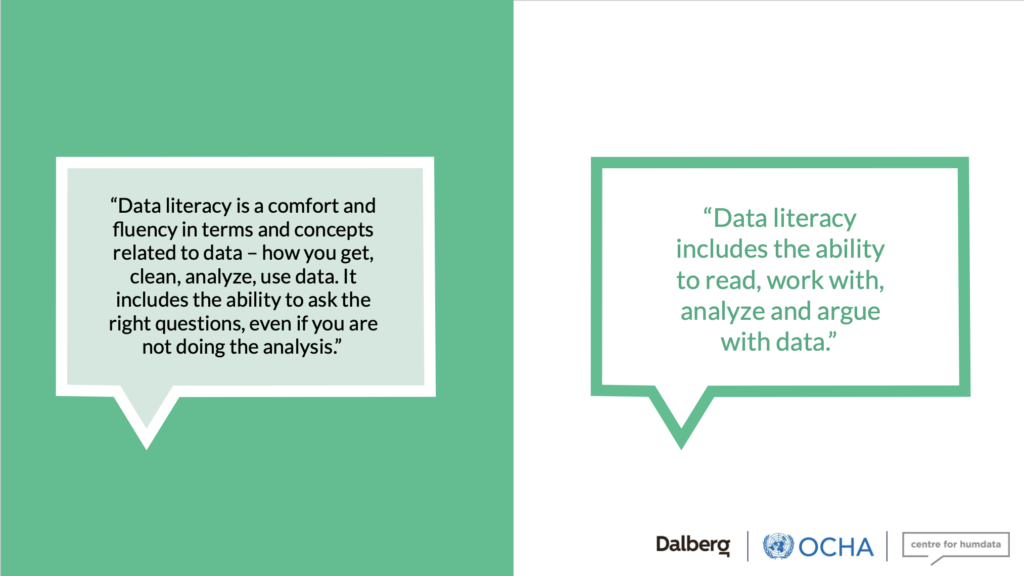
Data literacy is not simply the ability to perform certain tasks in a spreadsheet or knowing how to code. It will look differently for everyone. For some, data literacy will mean being able to use advanced tools to augment and automate the work they are already doing. For others, it will mean knowing how to ask good questions that data can answer.
The goal of the Centre’s programme is not to give everyone a uniform set of data skills, but rather to build data awareness into everyday activities. We want to help humanitarians use data to enhance their performance, that of their teams, and ultimately the humanitarian response. This is in line with the motivations expressed by survey respondents.
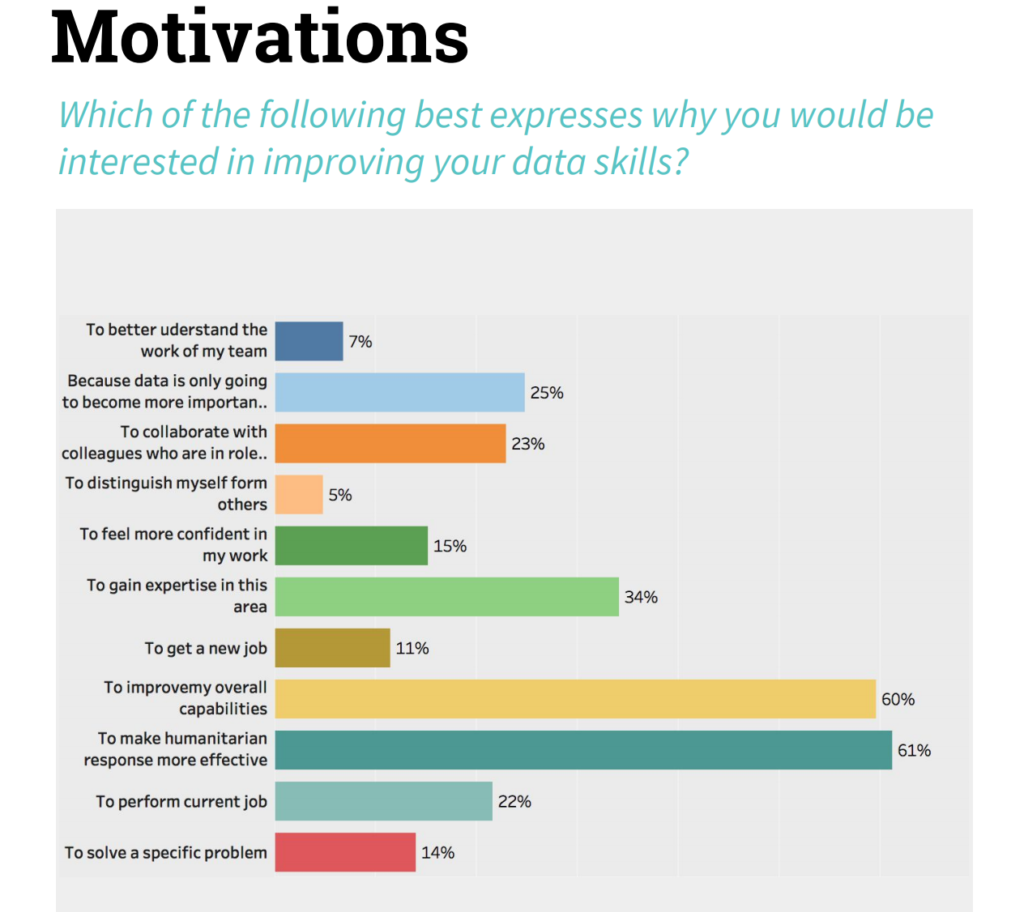
One way we hope to achieve this is by injecting data literacy activities into existing training and staff development initiatives through talks and interactive learning sessions.
Humanitarians are data people, even if they do not identify that way
In the survey, over 98% of respondents reported using data all or some of the time. However, in conversations with humanitarians about data, we continue to hear the refrain, ‘I am not a data person’.
An organisational data culture requires that everyone sees how they fit into, contribute to, and affect the organisation’s use of data. This disconnect between ubiquitous data use and identification as a ‘data person’ was also seen in the survey response. We saw a higher drop-off rate in completions among non-technical staff compared to those working in technical data management roles, indicating that non-technical staff are less likely to feel that a data skills assessment is relevant to them.
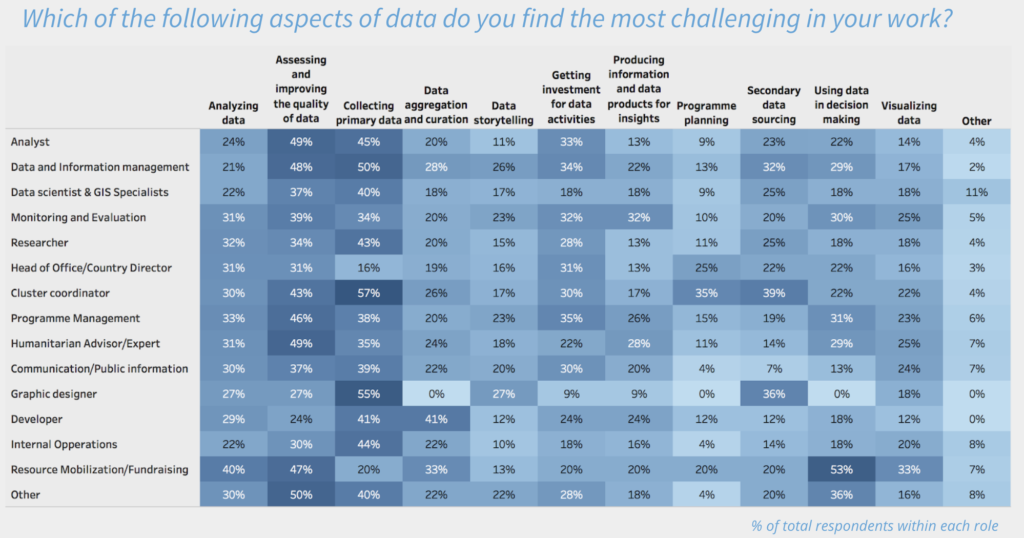
There is a baseline level of technical proficiency that all humanitarians require to succeed in an environment where data is becoming an evermore critical part of our work. Irrespective of job titles, we all need to understand how the data we have is shaped by the questions we ask. We need to deepen our understanding of the very real challenges of gathering, cleaning, and analysing the right data in each humanitarian context. We must be able to read, interpret, and interrogate analysis for insights to answer those guiding questions.
Improved data literacy at the organisation, team, and individual level will support everyone to engage more substantively in the data management process, communicate with data more effectively and advocate for data investment in the sector more broadly. In order to achieve this, our programme will place an emphasis on humanitarians from non-technical backgrounds who are vital in the translation of data across roles and in connecting decision makers with data products. To support structured training events, we will develop and adapt modular learning resources to help non-technical humanitarians develop the data skills most relevant to their work.
The ‘big data, predictive analytics, and statistics’ elephant in the room
When we asked what data-related topics humanitarians are interested in learning, the top three responses were big data, predictive analytics, and statistics. It is easy to understand why. These are trendy topics that everyone from senior leaders to data managers are thinking and talking about. Humanitarians are interested in learning about new technologies and there can also be confusion or even angst about what they actually mean for the future of our work.
Some of this confusion comes from people using terms that they might not fully understand. No one wants to ask clarifying questions or appear to be the one person in the room that does not understand what purposive sampling or critical incident reporting means.
We all need to become conversant in the language of data. While humanitarians might not need to know how to analyse big data, they should know how it could be used for informing humanitarian response and how and where to tap expertise. Only when we are speaking this common language can humanitarians from a diverse set of backgrounds collectively debate the role of data and new technologies in humanitarian response. A first step in creating this more inclusive conversation is to demystify complex technical concepts.
To achieve this, we need to start by talking about this ‘elephant in the room’ in a way that highlights both the potential and applicability of new practices and technologies. We will develop learning activities that help ground these concepts in their practical application, focusing on the process rather than the outcome.
Next Steps
Based on the survey results and additional qualitative research, we are developing a two-year roadmap for the Centre’s Data Literacy programme. We will share more details about our plans in the coming weeks.
In the meantime, please send any feedback or ideas to centrehumdata@un.org. And special thanks to those of you who took the time to respond to the survey!
The Data Literacy Team includes Katelyn Rogers and Lisa Peterson. The survey was conducted in partnership with Dalberg Design.
